Home › What is ERA?
What is ERA?
What is ERA?
The European Research Area (ERA) is there to ensure a free flow of knowledge in Europe!
Its story dates back to 2000 when the European Union started to create the ERA as a vision of a developed, functional and interconnected research area without any barriers to collaboration between researchers across Europe.
The main motivation for this initiative was the need to increase European competitiveness, improving the coordination of research and innovation activities at national and European level, developing human resources and making Europe more attractive to the best scientists from all over the world. A genuine single market with free circulation of researchers, knowledge, innovation and technology allows researchers, innovators, institutions and businesses to be mobile, compete and collaborate across borders.
Since its inception, the ERA has achieved important accomplishments. The development of European Research Infrastructures, the initiation of joint research initiatives, advancements in the removal of barriers to researcher mobility, and the facilitation of open and collaborative knowledge exchange, are excellent examples of those.
Recently, the EU Member States and the European Commission have revitalized this initiative with the realignment of the „New European Research Area“ and a whole new governance of the ERA, launched by the Pact for Research and Innovation in Europe. The Pact for R&I in Europe sets forth four overarching priorities for the realisation of the ERA. These priorities are specified into 20 concrete ERA Actions that form the ERA Policy Agenda for the period 2022-2024. This agenda calls upon the EU Member States and the European Commission to work together and achieve these goals through collaboration and coordination.
Interested in learning more? Visit the European Research Area Platform!
NEW on the ERA platform! Explore how Horizon Europe supports the implementation of the European Research Area. New content on ERA priorities features resources, tools, videos and calls.
Visit our ERA Initiatives page where you can find links to a wide range of initiatives supporting the implementation of the European Research Area, including projects, networks and associations.
European Research Area Policy Platform:
a gateway for the ERA
In January 2024, the European Commission launched a new Policy Platform on the European Research Area (ERA), a dedicated one-stop-shop to provide a comprehensive overview of current ERA policies, activities and achievements.
The platform features:
- information about the state of implementation of the ERA Policy Agenda and its joint actions.
- insights into EU-wide activities contributing to make progress on the ERA.
- elements of the ERA monitoring mechanism, including interactive graphs showing the progress on ERA priorities as reported in the ERA Scoreboard and the ERA Dashboar.d
- a repository of key ERA-related documents and reports available to the public.
EU Member States, countries associated to Horizon Europe, and R&I Stakeholder organisations will be able to contribute to the content of the website, thereby supporting the ERA monitoring system by sharing information, data or documents relevant for assessing the state-of-play on the various ERA actions, both at national and EU-level.
The ERA Policy Platform is part of the new ERA governance framework and the Pact for Research and Innovation (R&I) in Europe.
The ERA Policy Platform is the main source of information regarding the 20 ERA Actions. The INSPIRING ERA Information Hub, will be processing and analysing data collected via the platform. Moreover it will connect and facilitate the sharing of information on the ERA.
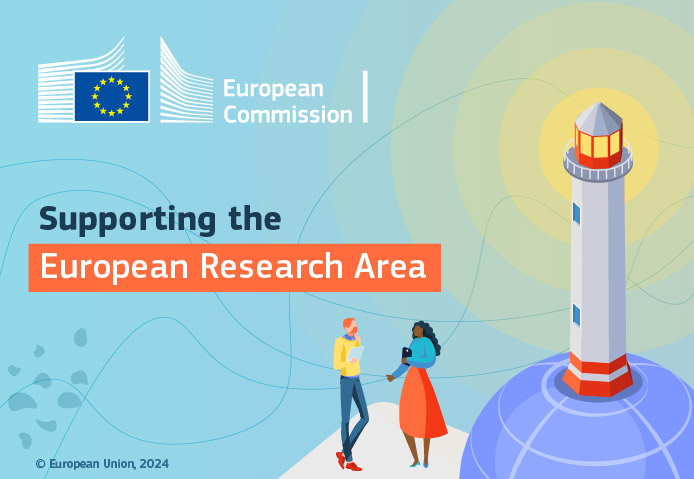
ERA Policy Actions
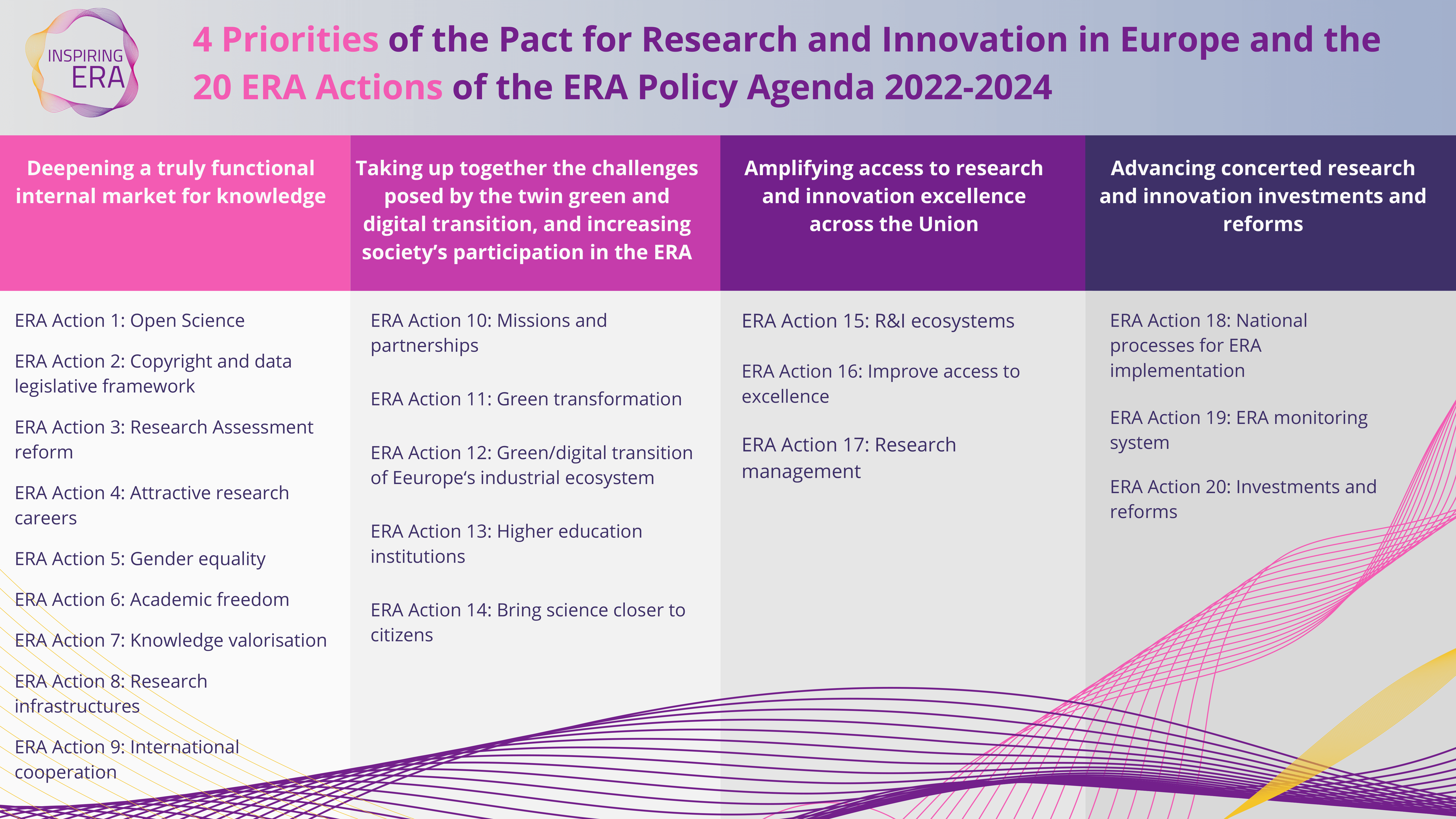
ERA Action 1: Open Science
 Action 1 of the ERA Policy Agenda aims to facilitate a system of open sharing, seamless access, and reliable re-use of research data. Scientific discovery and research impact are highly dependent on an open sharing of scientific data and research outputs. However, there are obstacles to Open Science practices and digital research, as a significant part of scientific data: 1) is not shared openly, (2) never makes it to a trusted and sustainable repository, and (3) is poorly annotated or not formatted in a standardised way allowing for machine-readability.
Action 1 of the ERA Policy Agenda aims to facilitate a system of open sharing, seamless access, and reliable re-use of research data. Scientific discovery and research impact are highly dependent on an open sharing of scientific data and research outputs. However, there are obstacles to Open Science practices and digital research, as a significant part of scientific data: 1) is not shared openly, (2) never makes it to a trusted and sustainable repository, and (3) is poorly annotated or not formatted in a standardised way allowing for machine-readability.
In view of enhancing Open Science (OS) in Europe, the ambition of the EOSC action is to provide an environment that allows researchers, innovators, companies and citizens to publish, find and re-use each other’s data and tools (i.e., methods, protocols, software, and publications) for research, innovation and educational purposes. In line with this ambition, the ERA Policy Agenda 2022-2024 envisions three main outcomes:
- Deploying OS principles and identifying OS best practices;
- Deploying the core components and services of EOSC and integrating existing data infrastructures in Europe, working towards the interoperability of research data;
- Establishing a monitoring mechanism to collect data and benchmark investments, policies, digital research outputs, OS skills, and infrastructure capacities related to the EOSC.
Source: ERA Policy Platform
ERA Action 2: Copyright and data legislative framework
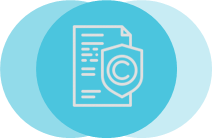 This action aims to propose an EU copyright and data legislative and regulatory framework fit for research.
This action aims to propose an EU copyright and data legislative and regulatory framework fit for research.
It should enable, among other:
- Access to (including open access) and reuse of publicly funded R&I results;
- Access to (including open access) and reuse of publications and data for research purposes;
- Data services and infrastructures managed for the benefit of research stakeholders; and
- Flow of research knowledge and data across the EU.
Barriers and challenges to achieve these objectives, however, currently exist. To address this situation, the expected outcomes of the ERA Action 2 are twofold:
(i) identify barriers and challenges to access and reuse of publicly funded R&I results and of publications and data for scientific purposes, and identify potential impacts on research, through an analysis of relevant provisions under EU copyright and data legislation and related regulatory frameworks, and of relevant institutional and national initiatives;
(ii) propose legislative and non-legislative measures to improve the current EU copyright and data legislative and regulatory frameworks. 14 Member States have committed to this action: Austria, Belgium, Czechia, Denmark, Estonia, France, Germany, Hungary, Italy, the Netherlands, Portugal, Slovakia, Slovenia, and Spain. Seven ERA Forum stakeholders have also committed to Action 2. These are: CESAR, EU Life, European University Association, Science Europe, SPARC Europe, The Guild, and YERUN.
Source: ERA Policy Platform
ERA Action 3: Research Assessment reform
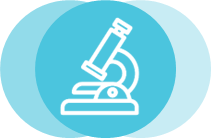 ERA Action 3 of the ERA Policy Agenda aims to advance towards a reform of the research assessment system, with the goal of assessing the quality, performance, and impact of research and researchers using more suitable criteria and procedures.
ERA Action 3 of the ERA Policy Agenda aims to advance towards a reform of the research assessment system, with the goal of assessing the quality, performance, and impact of research and researchers using more suitable criteria and procedures.
The assessment of research projects, researchers, and institutions is crucial for ensuring a well-functioning R&I system and to improve the quality, performance and impact of research. While some research funding and performing organisations have begun to enhance their assessment tools, the current system still often relies on inadequate and narrow methods, and the advancement in improving research and researcher assessment across Europe has been slow, limited, and fragmented.
In view of the objective to advance towards the reform of the assessment system for research, researchers and institutions to improve their quality, performance and impact, Action 3 aims to reward open science practices in terms of open collaboration, knowledge and data sharing to increase quality, efficiency and trust, establish coalitions between relevant stakeholders and identify potential administrative and legal barriers to institutional changes. The three expected outcomes outlined in the ERA Policy Agenda 2022-2024 are:
- Analysis of legal and administrative barriers at national and trans-national level for a modern research assessment system;
- Create a Coalition of European research funders and research performers who agree on a new approach for research assessment, following wide and inclusive consultations at European and international level;
- Implementation plan of the coalition to roll-out the new approach, including pilots in different domains.
Source: ERA Policy Platform
ERA Action 4: Attractive research careers
 This action aims at strengthening research careers in Europe and at making them more attractive for EU and international research talents. It seeks to provide researchers with enhanced working conditions and with the necessary instruments to undertake excellent research. The action also tackles the challenges posed by current skills mismatches, which can negatively affect inter-sectoral and inter-disciplinary mobility as well as the whole cycle of knowledge production, circulation and valorisation.
This action aims at strengthening research careers in Europe and at making them more attractive for EU and international research talents. It seeks to provide researchers with enhanced working conditions and with the necessary instruments to undertake excellent research. The action also tackles the challenges posed by current skills mismatches, which can negatively affect inter-sectoral and inter-disciplinary mobility as well as the whole cycle of knowledge production, circulation and valorisation.
On the basis of the expected outcomes defined by the Council, the Commission has identified 3 strands of activities to be implemented in the context of the action:
- The development of a European framework for research careers, to address in a comprehensive way all challenges related to research careers in Europe;
- The exchange of best practices and mutual learning to foster inter-sectoral mobility, more balanced talent circulation, and researchers’ skills;
- Developing or improving tools in support of research careers. This includes existing instruments such as EURAXESS, RESAVER, or the Human Resources Strategy for Researchers (HRS4R, the implementation mechanism for the Charter and Code for Researchers), as well as the development of new ones, such as a European Competence Framework for Researchers (ResearchComp), the ERA Talent Platform as a one-stop-shop for researchers, and a Research and Innovation Careers Observatory.
Source: ERA Policy Platform
ERA Action 5: Gender equality
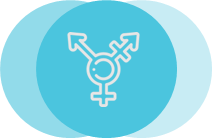 This action aims at promoting inclusive gender equality in the ERA, while continuing to progress towards the three objectives that have underpinned the gender equality priority in the ERA since the 2012 Communication, i.e., promoting gender equality in careers at all levels, enhancing gender balance in decision-making, and integrating the gender dimension into research content.
This action aims at promoting inclusive gender equality in the ERA, while continuing to progress towards the three objectives that have underpinned the gender equality priority in the ERA since the 2012 Communication, i.e., promoting gender equality in careers at all levels, enhancing gender balance in decision-making, and integrating the gender dimension into research content.
The new inclusiveness dimension of gender equality policies in the ERA Policy Agenda 2022-2024 aims to better tackle intersections between gender and other social categorisations and personal identities (i.e. address intersectionality), as well as to take into account inclusiveness at the geographical and sectorial levels to ensure that all countries are on board, and that the innovation actors and the private sector are also involved, considering in particular the significant under-representation of women in the STEM-oriented innovative entrepreneurship domain.
The accomplishment of these objectives is interrelated in particular with the implementation of Gender Equality Plans (GEPs) in Horizon Europe as key drivers of institutional change. Having a GEP has been set as an eligibility criterion for all public bodies, higher education institutions and research organisations from EU Member States and Associated Countries aiming to participate in the Horizon Europe calls with deadlines in 2022 and onward. This shift has been supported by a growing number of Member States that have a GEP requirement in place at national level.
The Ljubljana Declaration on Gender Equality in Research and Innovation, a core commitment to mainstream gender equality spearheaded by the Slovenian Presidency and endorsed by 25 Member States and the European Commission, also evidenced the role of GEPs as key policy instruments to achieve long-term and sustainable institutional change in the new ERA.
The approach to gender equality in R&I, as established in the Communication of 30 September 2020 on ‘A new ERA for Research and Innovation’ emphasises inclusive GEPs as a key priority in the new ERA and acknowledges that ‘other characteristics such as racial and ethnic origin, disability, socioeconomic background or sexual orientation interact and can reinforce intersectional and specific forms of discrimination that may limit the impact of measures focused only on one characteristic’. In addition, the Ljubljana Declaration identifies the need to address gender-based violence (GBV) in R&I, and to strengthen monitoring and evaluation of gender equality, including developing appropriate indicators to measure progress.
These EU-level initiatives aim to address some of the persistent inequalities and challenges in relation to gender equality across the R&I ecosystem in Europe, which are evidenced by key EU publications such as the She Figures .
Consequently, Action 5 envisages the following four outcomes:
- Develop a policy coordination mechanism to support all aspects of gender equality through inclusive Gender Equality Plans and policies, and a dedicated EU network on their implementation;
- A strategy to counteract gender-based violence, including sexual harassment, in the European R&I system and ensure gender equal and inclusive working environments through institutional change in research funding and performing organisations;
- A policy approach to inclusive gender equality, that addresses gender mainstreaming and opening to intersectionality with other diversity dimensions to advance the new ERA;
Develop principles for the integration and evaluation of the gender dimension in R&I content in cooperation with national RFOs.
Source: ERA Policy Platform
ERA Action 6: Academic freedom
 Freedom of scientific research and academic freedom is safeguarded by Article 13 of the Chapter of Fundamental Rights of the EU (2000/C 364/01). Both are fundamental pillars of the EU’s commitment to safeguarding knowledge and promoting intellectual autonomy. However, the autonomy of scientific research and academic institutions often faces threats in cases where foreign actors exert control over international academic and research collaborations.
Freedom of scientific research and academic freedom is safeguarded by Article 13 of the Chapter of Fundamental Rights of the EU (2000/C 364/01). Both are fundamental pillars of the EU’s commitment to safeguarding knowledge and promoting intellectual autonomy. However, the autonomy of scientific research and academic institutions often faces threats in cases where foreign actors exert control over international academic and research collaborations.
Repression can extend beyond borders, endangering HEI’s, research performing organisations, and individual scholars who may be compelled to engage in self-censorship. In response, this action seeks to protect freedom of scientific research and promote the development of tools to address foreign interference in research and innovation (R&I) and facilitate collaboration among Member States on this topic (see Commission Staff Working document).
ERA Action 6 consists of two main elements :
- Fostering the formulation of a comprehensive policy framework aimed at preserving and promoting academic freedom throughout Europe.
- Providing substantial backing to HEIs, RPOs and RTOs in their efforts to identify and address issues related to foreign interference in Research and Innovation (R&I) activities.
Statements have been published to define academic freedom. Annex I of the European Higher Education Area (EHEA) Rome 2020 ministerial Communique defines it as the ‘freedom of academic staff and students to engage in research, teaching, learning, and communication in and with society without interference nor fear of reprisal’.
The Bonn Declaration on Freedom of Scientific Research published in 2020 mentions that freedom of scientific research is a broad concept which is related to freedom of expression, freedom of association, freedom of movement, and the right to education, among other rights. It includes the freedom to independently formulate research inquiries, select and refine theoretical frameworks, collect empirical data, and apply rigorous academic research methodologies. It also encompasses the ability to challenge established conventions and present innovative concepts.
This action aligns with ERA Priority 1, which aims to deepen a truly functioning international market for knowledge, by ensuring the protection and monitoring of academic freedom. Action 6 also contributes to the objectives of the G7 Working Group on the Security and Integrity of the Global Research Ecosystem (SIGRE).
This Action is expected to have four outcomes:
- Facilitate the development of a policy approach to safeguard the freedom of scientific research in Europe, based on the Bonn Declaration on freedom of scientific research by publishing the first European monitoring report on the freedom of scientific research.
- Organise mutual learning exercise on tackling R&I foreign interference among interested MS.
- Set up of a one-stop shop European digital platform on academic freedom and foreign interference in R&I.
- Develop Open-Source Intelligence Tool (OSINT) for research organizations and universities, offering easily accessible information on foreign institutions, individuals, technologies, affiliations, research projects and universities.
Source: ERA Policy Platform
ERA Action 7: Knowledge valorisation
 This Action aims to address the various needs of the R&I landscapes in the context of the management of intellectual property in knowledge transfer activities. It aims to catalyse the move from the traditional concept of knowledge transfer to valorisation of knowledge assets. It also addresses the increasingly complex knowledge value-chains, new market opportunities created by emerging technologies, new forms of industry-academia collaborations and involvement of citizens, as well as reciprocity in the management of intellectual property in international R&I cooperation.
This Action aims to address the various needs of the R&I landscapes in the context of the management of intellectual property in knowledge transfer activities. It aims to catalyse the move from the traditional concept of knowledge transfer to valorisation of knowledge assets. It also addresses the increasingly complex knowledge value-chains, new market opportunities created by emerging technologies, new forms of industry-academia collaborations and involvement of citizens, as well as reciprocity in the management of intellectual property in international R&I cooperation.
The goal of this action is to establish a unified approach to measures and policy instruments that enhance knowledge sharing and valorisation in Europe. This Action includes the following 3 expected outcomes:
- Develop and endorse Guiding Principles for knowledge valorisation;
- Development of a Code of Practice for smart use of IP together with stakeholders;
- Development of a Code of Practice for researchers on standardisation.
The Guiding Principles for knowledge valorisation will entail a political commitment co-designed with, and endorsed by, Member States. The intent of the Guiding Principles is to cater to the needs and feedback of knowledge valorisation actors, and to present a legal reference to encourage knowledge circulation and valorisation in Europe.
These guidelines will also help address knowledge valorisation gaps in Member States and guarantee that Widening Countries can better benefit from R&I results. Codes of Practice will offer guidance to R&I professionals on the implementation of specific aspects of knowledge valorisation, such as intelligent intellectual property management and standardization for effective knowledge uptake.
For more information, please visit the Knowledge Valorisation Platform.
Source: ERA Policy Platform
ERA Action 8: Research infrastructures
 ERA Action 8 aims to reinforce Europe’s research and innovation system through a set of European-level initiatives in the field of research infrastructures. The goal is to strengthen sustainability in terms of funding and investments, ensuring for researchers and innovators equal opportunities to access services provided by European infrastructures and increasing the impact of the investment made in research infrastructures on economy and society.
ERA Action 8 aims to reinforce Europe’s research and innovation system through a set of European-level initiatives in the field of research infrastructures. The goal is to strengthen sustainability in terms of funding and investments, ensuring for researchers and innovators equal opportunities to access services provided by European infrastructures and increasing the impact of the investment made in research infrastructures on economy and society.
European-level activities have contributed to the development of a mature research infrastructure landscape. Existing frameworks like the ESFRI Roadmap, the European Charter for Access to research infrastructures and the ERIC Legal Framework will be improved. Furthermore, through enhanced analysis and the implementation of new funding models and performance monitoring methodologies, persistent and emerging challenges will be effectively addressed.
This Action aims to achieve five outcomes, with a focus on sustaining long-term excellence and competitiveness within the ERA:
- Strategic analysis of the European Research Infrastructure landscape;
- Broader and more sustainable access for all countries to European research infrastructures and their services and revision of the European Charter of Access to Research Infrastructures;
- Update of the ESFRI Roadmap and implementation of the research infrastructures performance monitoring framework;
- Report on the ERIC Framework;
- Increased cooperation between research infrastructures, e-infrastructures and stakeholders, including through EOSC.
Action 8 addresses European research infrastructures and their interface with technology infrastructures, which is also relevant to Action 12, where technology infrastructures linked to Industrial policy will be addressed.
Source: ERA Policy Platform
ERA Action 9: International cooperation
 ERA Action 9 has a strategic focus on promoting a positive environment and level playing field for international cooperation based on reciprocity. This approach considers shared values and principles, respecting high ethical standards, academic freedom, and human rights in international R&I cooperation, promoting rules-based multilateralism, pursuing reciprocal openness and modulating its bilateral relations in R&I in line with European interests and values to maintain the EU’s strategic autonomy.
ERA Action 9 has a strategic focus on promoting a positive environment and level playing field for international cooperation based on reciprocity. This approach considers shared values and principles, respecting high ethical standards, academic freedom, and human rights in international R&I cooperation, promoting rules-based multilateralism, pursuing reciprocal openness and modulating its bilateral relations in R&I in line with European interests and values to maintain the EU’s strategic autonomy.
There are four specific outcomes that this ERA Action aims to achieve:
- Further develop values and principles for international cooperation in R&I as set out in the Council Conclusions on the Global approach to Research and Innovation – Europe’s strategy for international cooperation in a changing world to be promoted in multilateral dialogues with partner countries and international fora;
- Launch one pilot initiative on the Team Europe approach for a specific world region and/or topic;
- Develop a European Science Diplomacy Agenda;
- Promote a coordinated joint approach for engagement in multilateral initiatives.
Action 9 is particularly related to Action 6: Deepening the ERA Through Protecting Academic Freedom. Both actions relate to the EU’s strategic autonomy in protecting its researchers and innovation stakeholders. The EU intends to lead by example, in respecting high ethical standards, academic freedom and human rights when cooperating with countries and regions outside Europe.
Source: ERA Policy Platform
ERA Action 10: Missions and partnerships
 Action 10 focuses on the EU Missions and European Partnerships connected with Horizon Europe. It aims to implement these initiatives in a way that maximises their impact, establishes them as key contributors to the ERA, and ensures that they support the twin green and digital transition.
Action 10 focuses on the EU Missions and European Partnerships connected with Horizon Europe. It aims to implement these initiatives in a way that maximises their impact, establishes them as key contributors to the ERA, and ensures that they support the twin green and digital transition.
EU Missions have been introduced to the Horizon Europe research and innovation programme for the 2021-2027 programming period. They support Commission priorities, such as the European Green Deal, Beating Cancer and Europe fit for the Digital Age by setting targets with clear timelines and deliverables to achieve concrete solutions to these challenges. The Missions incorporate governance, collaboration, and citizen engagement into R&I. The main outcome for EU Missions outlined in Action 10 is to share information, raise awareness and develop ownership of EU R&I Missions at national, regional and community levels.
European Partnerships are a key implementation tool of Horizon Europe that brings public and/or private partners together with the European Commission to address societal challenges through R&I initiatives. The Partnerships primarily aim to deliver on the European Green Deal and Europe’s Digital Decade by supporting partnerships in finding creative solutions to tackling emissions in energy-intensive industries and developing innovative data technologies. They allow for the pooling of resources, the creation of a critical mass and the alignment of R&I agendas to avoid duplication of investments and reduce the fragmentation of the R&I sector. Within Action 10, the Partnership Knowledge Hub contributes to monitoring Partnerships’ performance and how they contribute to the values and principles of the new ERA.
Source: ERA Policy Platform
ERA Action 11: Green transformation
 This Action aims at setting and implementing strategic priorities that deliver on the ERA agenda, by prioritising investments in R&I towards the green transition, improving access to excellence, translating R&I results into the economy and deepening policies that promote the free circulation of knowledge.
This Action aims at setting and implementing strategic priorities that deliver on the ERA agenda, by prioritising investments in R&I towards the green transition, improving access to excellence, translating R&I results into the economy and deepening policies that promote the free circulation of knowledge.
Accelerating research and innovation and improving collaboration between private and public R&I in the Member States with a view to early market introduction of clean technology solutions is crucial to achieving the ambitious targets set by the European Commission to become climate neutral by 2050 and to reduce greenhouse gas emissions by at least 55% by 2030 compared to 1990.
Part of Action 11 is foreseen to contribute to the achievement of three key outcomes, as outlined in the European Research Area Policy Agenda 2022-2024:
Policy approach for a cooperation framework on R&I driven safe and sustainable low-carbon energy technologies;
Development of a green hydrogen R&I ERA pilot action, while ensuring consistency with other related initiatives and without prejudice to the relevance of a broader hydrogen R&I policy approach;
ERA4FutureWork: a policy approach (at local, regional, national and EU levels) to address research and development (R&D) funding for the Future of Work.
Action 11 is part of the priority area ‘Taking up together the challenges posed by the twin green and digital transition and increasing society’s participation in the ERA’ and linked with Actions 10-14 focussing on the twin green and digital transition and the challenges for society and R&I linked to them. The action is particularly closely linked to Action 12 of accelerating the green/digital transition of Europe’s key industrial ecosystem.
Source: ERA Policy Platform
ERA Action 12: Green/digital transition of Eeurope‘s industrial ecosystem
 The green and digital transitions call for increased R&I investments as well as timely scale-up and deployment of results, notably by industry, including SMEs and start-ups. The European Green Deal is a long-term vision for a greener, fairer, more resilient society with the ambition for significant greenhouse gas emissions reduction by 2030 and achieving climate neutrality by 2050. Implementing this ambition requires the mobilisation of all available R&I investment programmes, but also strategic and joint engagement by policy-makers, industry and R&I stakeholders at EU and national levels.
The green and digital transitions call for increased R&I investments as well as timely scale-up and deployment of results, notably by industry, including SMEs and start-ups. The European Green Deal is a long-term vision for a greener, fairer, more resilient society with the ambition for significant greenhouse gas emissions reduction by 2030 and achieving climate neutrality by 2050. Implementing this ambition requires the mobilisation of all available R&I investment programmes, but also strategic and joint engagement by policy-makers, industry and R&I stakeholders at EU and national levels.
The outcomes of Action 12 are to create stronger links between research & innovation and industrial policies, encourage systematic transfer of R&I results into EU industrial ecosystems and mobilise private and public R&I investments for a faster development and deployment of key green and digital technologies through the following activities:
Facilitate a consultation process on R&I-related needs of industries, including skilling needs, digitalisation, R&I driven standardisation, technology roadmaps, and research infrastructures;
Develop a policy framework to support industrial R&I from fundamental research to breakthrough knowledge and innovation;
Develop a policy approach to link industrial and R&I policies, on how to speed up the industrial absorption of R&I results for decarbonisation of energy-intensive industries;
Develop industrial technology roadmaps for low-carbon technologies in energy-intensive industries and for circular technologies and business models at EU and national levels;
Develop a coordination mechanism to provide industry with the Technology Infrastructures needed to test, validate and scale up innovations;
Address the social adaptation driven by the green (and digital) transitions.
Action 12 is part of the priority area ‘Taking up together the challenges posed by the twin green and digital transition and increasing society’s participation in the ERA’ and linked with actions 10 and 14, focussing on the green and digital transitions and the challenges for society and R&I linked to them. The action is also particularly closely linked to action 11, the ERA For Green Energy Transformation.
Source: ERA Policy Platform
ERA Action 13: Higher education institutions
 Action 13 acknowledges the role of European universities in driving the green and digital transition and aims at empowering them to take an active role on this front. Through its focus on higher education, Action 13 is strongly interrelated with the achievement of the European Education Area by 2025. The action seeks to offer new ways for universities and researchers to work, cooperate and innovate across borders, and aims at ensuring Europe’s role and competitiveness on the global stage in research and innovation.
Action 13 acknowledges the role of European universities in driving the green and digital transition and aims at empowering them to take an active role on this front. Through its focus on higher education, Action 13 is strongly interrelated with the achievement of the European Education Area by 2025. The action seeks to offer new ways for universities and researchers to work, cooperate and innovate across borders, and aims at ensuring Europe’s role and competitiveness on the global stage in research and innovation.
As outlined in the ERA Policy Agenda 2022-2024, Action 13 revolves around three core outcomes:
Supporting universities in their digital transition.
Developing a policy approach to equip researchers with the skills needed for an interoperable career in academia and beyond.
Developing a policy approach on future EU level support for the further development of Horizon Europe institutions, including through a European Excellence Initiative and the consolidation of the European Universities Initiative.
The ERA Forum subgroup decided to focus on the third objective given that the first and second objectives are largely tackled by other ERA Actions (in particular Actions 1 and 4).
Source: ERA Policy Platform
ERA Action 14: Bring science closer to citizens
 The role of citizens has been evidenced as crucial to ensure broader impact of R&I as well as higher alignment with societal needs and challenges. As a result of its relevance, citizen engagement has been embedded into the EU Missions. Missions have the potential to mobilize EU citizens around common goals and to offer meaningful opportunities to participate in change. They are instrumental to building a deliberative democracy in the EU.
The role of citizens has been evidenced as crucial to ensure broader impact of R&I as well as higher alignment with societal needs and challenges. As a result of its relevance, citizen engagement has been embedded into the EU Missions. Missions have the potential to mobilize EU citizens around common goals and to offer meaningful opportunities to participate in change. They are instrumental to building a deliberative democracy in the EU.
Consequently, the ERA aims to empower citizens and local communities to promote their engagement, trust and interest in science. Education, training activities and regular citizen science campaigns are some of the key instruments implemented to achieve this objective. Additionally, this action also promotes co-creation and collaboration with citizens in view of ensuring the societal uptake of the developed solutions and results.
The ERA Policy Agenda 2022-2024 defines the following expected outcomes within Action 14:
Scale-up the Plastic Pirates – Go Europe Initiative;
Launch the European City for Science, during the European Year for Youth;
Feasibility analysis for a federated ‘EU Science Media Network’ to ensure more factual journalistic reporting on science;
Propose a policy coordination mechanism on public engagement practices, including citizen involvement in scientific processes.
Source: ERA Policy Platform
ERA Action 15: R&I ecosystems
 With the aim to improve the translation of R&I results into the economy, it is crucial to strengthen the innovation ecosystems for knowledge circulation and valorisation by establishing stronger interconnection between existing collaborative and supportive structures, engaging a diversity of stakeholders in multi-disciplinary and cross-sectorial collaborations.
With the aim to improve the translation of R&I results into the economy, it is crucial to strengthen the innovation ecosystems for knowledge circulation and valorisation by establishing stronger interconnection between existing collaborative and supportive structures, engaging a diversity of stakeholders in multi-disciplinary and cross-sectorial collaborations.
The European Commission, in close collaboration with the European Committee of the Regions, the Member States and stakeholders, will conceptualise, pilot and launch the ERA Hubs across EU territory. The ERA Hub initiative has a clear added value that originates from the development of holistic knowledge strategies at regional level, based on a close collaboration of all relevant stakeholder of the quadruple helix and a structured collaboration key regional, national and European policies and programmes that can support place based-innovation eco-system. In addition, it serves as a knowledge platform to exploit existing strengths across the national R&I system while overcoming systemic and transformational weaknesses and allows synergies between the ERA Hubs (with a rather horizontal (ERA) focus) and other EU initiatives such as the European Digital Innovation Hubs (EDIH) or the Enterprise Europe Network (EENs), world’s largest support network for small and medium-sized enterprises (with a more thematic focus).
OUTCOMES:
• Define and pilot ERA Hubs to enable the emergence of competitive R&I ecosystems across the EU, to fill territorial gaps and to ensure easier flow of talents and investments
• Consultation process on future bilateral R&I cooperation activities to strengthen and connect R&I excellence in the ERA
PLEASE NOTE THAT THIS ACTION IS CURRENTLY NOT IMPLEMENTED
Source: ERA Policy Platform
ERA Action 16: Improve access to excellence
 By acknowledging the necessity for increasing excellence in order to make use of the full potential of scientific resources in Europe, Action 16 aims at improving access to excellence across the EU’s R&I system and specifically support low R&I performing countries. Reaching this very ambitious objective will require the combination of many different existing tools and potentially new or reinforced ones, at both EU and Member State level. In this regard, Cohesion Policy, the Widening Programme under Horizon Europe, the R&I investments in the Recovery and Resilience Framework as well as the use of the Horizon Policy Support Facility or the Technical Support Instrument will play a fundamental, albeit insufficient role. In addition, concerned Member States will also need to prioritise R&I investments and reforms when needed in order to improve their R&I performance.
By acknowledging the necessity for increasing excellence in order to make use of the full potential of scientific resources in Europe, Action 16 aims at improving access to excellence across the EU’s R&I system and specifically support low R&I performing countries. Reaching this very ambitious objective will require the combination of many different existing tools and potentially new or reinforced ones, at both EU and Member State level. In this regard, Cohesion Policy, the Widening Programme under Horizon Europe, the R&I investments in the Recovery and Resilience Framework as well as the use of the Horizon Policy Support Facility or the Technical Support Instrument will play a fundamental, albeit insufficient role. In addition, concerned Member States will also need to prioritise R&I investments and reforms when needed in order to improve their R&I performance.
Against this backdrop, Action 16 will contribute to first, securing better coordination of R&I and Cohesion policy, creating a link between the two communities, including the setting up and strengthening of synergies between EU and national/regional funding programmes to raise impact and thus R&I performance; and second, identifying persistent bottlenecks to raise excellence and propose possible solutions that will also contribute to the closing of the existing innovation divide.
In order to meet these objectives, and following discussions in the ERA Forum, the Commission established the ‘Access to excellence’ – ‘R&I and Cohesion Managing Authorities’ Network (RIMA) subgroup to the ERA Forum to conduct the implementation of ERA Action 16 – EU-wide Access to Excellence.
In order to foster the interaction between the two communities, the Commission asked Member States for the nomination of two main representatives and two alternative representatives in this subgroup of the ERA Forum. Out of the four representatives per Member State, two (main and alternate) should be appointed from the national authorities responsible for research and innovation and two (main and alternate) from the national authorities responsible for cohesion policy in the area of research and innovation investments.
These representatives should maintain close links to national and regional authorities in charge of Cohesion policy and authorities in charge of the implementation of Horizon Europe in terms of collecting input and disseminating results. Associated Countries as well as other public entities and ERA stakeholder organisations were invited to the group as observers. The group is jointly chaired by DG Research and Innovation, DG Regional and Urban Policy and a Member States’ representative (namely from the Czech Republic).
The first meeting took place on 7 June 2023. It focused on key novelties in synergies, and some indications on the future work resulting from the recent European Court of Auditors synergies’ audit, as well as other relevant initiatives for joining forces to improve the overall impact of EU R&I investment, such as Regional Innovation Valleys, the latest developments on Widening actions as well as the new Community of Practice on Smart Specialisation.
Member States’ presentations and discussions focussed on how to improve R&I performance across Europe by better interacting between the two key R&I supporting EU programmes, Horizon Europe and Cohesion Policy. Member State R&I authorities and Cohesion policy bodies presented and exchanged experiences on a broad range of synergies. This included discussions on governance, such as existing cooperation between R&I actors at national level, and the exchanges on more operational aspects, such as first concrete cases of implementing the new toolbox for synergies as outlined in the published guidance notice on Horizon Europe – ERDF synergies.
Source: ERA Policy Platform
ERA Action 17: Research management
 Action 17 aims at enhancing the training and skills development of research management staff, foster the management competences of researchers and innovators, increase networking of research managers and promote the recognition of the R&I management profession at institutional and government levels.
Action 17 aims at enhancing the training and skills development of research management staff, foster the management competences of researchers and innovators, increase networking of research managers and promote the recognition of the R&I management profession at institutional and government levels.
A strong community of R&I managers plays a crucial role in supporting high-performing research entities, local ecosystems, and regions. It is essential to provide support to this community and bridge the gaps that exist in regions lagging behind. By ensuring excellence across the entire ERA, the flow of talent and investments can be facilitated.
The European Commission aims to establish robust management capacity and guidance for the stakeholders involved through the Research Management Initiative. This initiative, under Horizon Europe, will support research management by facilitating the European network for research and innovation managers, exploring certification and training programs, and providing policy support for Member States through mutual learning platforms on research management.
The primary outcome expected from Action 17 is the implementation of a Research Management Initiative, which will involve at least 100 public research performing and research funding organisations and their research management staff in networking programs.
Source: ERA Policy Platform
ERA Action 18: National processes for ERA implementation
 In the past, Member States and Associated Countries taking part in the ERA were required to develop National Action Plans, as part of the ERA Roadmap process agreed in 2015. Measures, actions, and initiatives were set out in line with the EU common approach but also contained actions that were country and context-specific. For some ERA countries, this was a helpful effort, having a positive structuring effect to achieve the ERA objectives.
In the past, Member States and Associated Countries taking part in the ERA were required to develop National Action Plans, as part of the ERA Roadmap process agreed in 2015. Measures, actions, and initiatives were set out in line with the EU common approach but also contained actions that were country and context-specific. For some ERA countries, this was a helpful effort, having a positive structuring effect to achieve the ERA objectives.
Taking into account the diversity of national R&I systems, Member States can choose to develop a tailor-made national process or policy vehicle, for example, in the form of a National ERA Action Plan or Roadmap in the future. This action would be on a voluntary basis and help identify running or planned measures at the national or regional level considered to be best suited to contribute to the implementation of the ERA policy agenda. The action would also provide coordination between the EU and Member States on the definition and implementation of a national ERA policy approach.
OUTCOME
• Provide coordination between EU and Member States on the definition and implementation of national policy approaches supporting ERA
PLEASE NOTE THAT THIS ACTION HAS BEEN SUBMERGED INTO OTHER ACTIONS
Source: ERA Policy Platform
ERA Action 19: ERA monitoring system
 The Council Recommendation on a Pact for Research and Innovation in Europe states that “the Member States and the Commission should implement an enhanced monitoring mechanism, to ensure a proper basis for evidence informed policy making in the ERA and to provide evidence and analysis in the context of the European Semester”.
The Council Recommendation on a Pact for Research and Innovation in Europe states that “the Member States and the Commission should implement an enhanced monitoring mechanism, to ensure a proper basis for evidence informed policy making in the ERA and to provide evidence and analysis in the context of the European Semester”.
The new ERA monitoring mechanism shall be designed to assess the implementation of the ERA Actions and to measure progress towards the ERA priorities both at EU- and national levels.
In detail, this Action was defined to achieve the following outcomes:
An online ERA Policy Platform to serve as an umbrella tool for sharing information on the implementation of Actions and allowing exchanges between all actors.;
An ERA Scoreboard to show the overall progress at EU level for a limited number of indicators in view of realising the ERA priorities (as defined in the Pact for R&I);
An ERA Dashboard to provide a more detailed monitoring of the overall progress at national level in view of realising the ERA priority areas (as defined in the Pact for R&I);
A report on the state of play of the implementation of the ERA Policy Agenda and the progress made towards the ERA objectives (as set out in the Pact for R&I) at EU-level every 18 months (“EU-level Report”);
Annual reports on each Member State’s progress in the implementation of the ERA (“ERA Country Reports”).
With the support of these different tools, the aim is to identify barriers and challenges in the achievement of the ERA Actions and priorities, outperforming and less performing actions as well as good practices which should feed and reshape EU and national policies to effectively accomplish the defined milestones and objectives.
Source: ERA Policy Platform
ERA Action 20: Investments and reforms
 This action will assist interested Member States in voluntarily translating the R&D investment targets at national level taking into account their specificities. The main objective of this activity is to build evidence and foster debates strengthening transformative R&I policy. It also aims at maximising the impact of R&D investments directed to the green and digital transitions as well as economic recovery.
This action will assist interested Member States in voluntarily translating the R&D investment targets at national level taking into account their specificities. The main objective of this activity is to build evidence and foster debates strengthening transformative R&I policy. It also aims at maximising the impact of R&D investments directed to the green and digital transitions as well as economic recovery.
In order to implement this process, the action will:
• Provide new knowledge and evidence on the R&D investment targets and the need for directionality, duly considering existing capacities in R&I areas, domains and technologies. The action will provide solid analytical work and targeted analyses for each interested Member State.
• Contribute to the organisation of joint policy and technical discussions with Member States, experts and stakeholders to reflect on the targets and commonly agree on their specificities as well as on the process and methodology for their potential roll out at national level.
• Frame the setting up of bilateral debates with interested Member States to voluntarily translate the targets in the national contexts. This action will provide quantitative information, including from joint work and cooperation with Eurostat as well as the OECD.
OUTCOME:
• Develop and promote the adoption of a policy and investment approach, through bilateral and multilateral policy dialogues in order to support interested Member States in prioritising R&I investment, including synergies between EU and national programmes and apply structural reforms.
PLEASE NOTE THAT THIS ACTION IS CURRENTLY NOT IMPLEMENTED
Source: ERA Policy Platform

